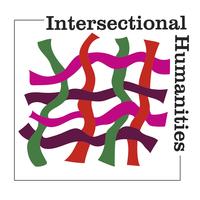Intersectional Humanities

This dynamic research Hub foregrounds the principle of intersectionality. In doing so, it both asserts and activates the core role and responsibility of the Humanities in reflecting on questions of identity, subjectivity, interiority and language. Intersectional thinking strengthens nuance and sensitivity to difference, and builds resistance to essentialism and the polarisation of culture wars. The need for this is now more urgent than ever.
The Hub recognises the complex interaction of diverse markers of identity, categorisation and self-understanding: according to gender, sexuality, racialisation, disability, ethnicity, class, religion, citizen status, ideological standpoint, generation. The application of multiply-refracting interpretative lenses sharpens the focus of debate within feminist, queer, trans, non-binary, critical-race, post-colonial and disability studies, as well as carrying the potential to be more broadly transformative of intellectual and institutional structures and assumptions. The Hub can only do this by remaining aware of the history of the concept of intersectionality as a critique of racialised and other forms of privilege, and is thus committed to openness, humility and self-reflexivity.
Creative and critical conversations are opened up across academic disciplines, and between academics, artists, activists, practitioners and policy-makers. There is scope to highlight the multicultural and transnational nature of the University of Oxford, of other educational institutions in the city, and of the wider local community, in addition to developing national and international networks.
It works closely with other TORCH Hubs and networks to foster exploratory research which does not fall into neat categories. It supports workshops, symposia and performative events which are designed to further its overarching goals, and provides a platform for grant applications.
The Hub has a close affinity with the community of the interdisciplinary MSt in Women’s, Gender and Sexuality Studies, which has a 25-year history (until 2021 as Women’s Studies) of intersectional critical engagement in which theory and practice have cross-fertilised. The interplay of activism within and outside the academy speaks to the politics of naming – conspicuously to that of ‘woman’ - and to the understanding of all terminological descriptors in their most capacious sense.
Academic Leads:
Jane Garnett, Co-Director (Faculty of History)
Pelagia Goulimari, Co-Director (Faculty of English)
Student Committee Members
Aincre Evans
Aleksandra Avgust
Avik Sarkar
Georgia Lin
Jasmine Baten
Misbah Reshi
Sofia Sanabria De Felipe
Vasileios Mitsikakos
Feminist Thinking Student co-chairs
Aleksandra Avgust
Avik Sarkar
Izzy Hardin
Jasmine Baten
Josephine Rosman
Soleil Doering
Susanna Demelas


